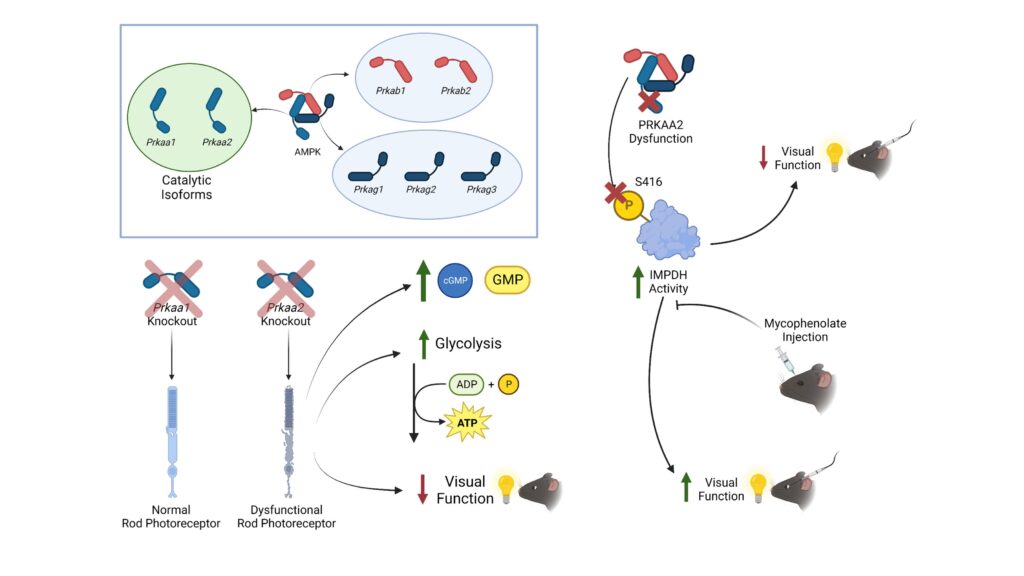
Graduate student Tim Lee from the Division of Biology and Biomedical Sciences (DBBS), working in collaboration with the Apte Lab, has published a new paper revealing a significant discovery in the realm of photoreceptor dysfunction.
The research, titled “Identification of IMPDH as a Therapeutically Modifiable Target of AMP Kinase in Rod Photoreceptors,” sheds light on a previously unrecognized target of AMP kinase known as IMPDH (Inosine Monophosphate Dehydrogenase). This discovery holds immense promise for therapeutic interventions in diseases characterized by photoreceptor dysfunction.
The study, conducted by Tim Lee and his colleagues, unraveled the intricate relationship between AMP kinase and IMPDH in rod photoreceptors. This newfound understanding opens avenues for developing targeted therapies to modulate IMPDH, offering potential treatments for a range of diseases affecting photoreceptor function.
Photoreceptor dysfunction is implicated in various eye diseases, and this discovery holds promise for addressing these conditions at the molecular level. The paper, published in JCI Insight, marks a crucial milestone in the field of vision science and molecular therapeutics.
The paper is now available for review in JCI Insight and is expected to draw attention from researchers, clinicians, and pharmaceutical developers alike. This breakthrough not only advances our understanding of photoreceptor biology but also paves the way for innovative therapeutic approaches in the field of ophthalmology.
